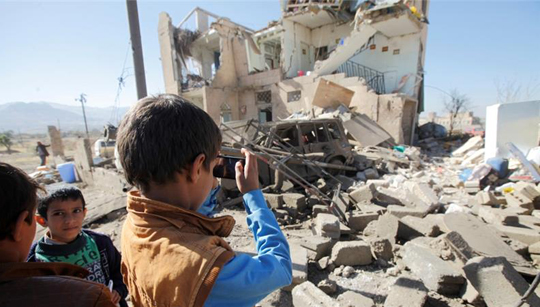Nov 19: The Saudi-led military coalition supporting Yemen's government against the Houthi rebels has declared a 48-hour ceasefire to begin on Saturday.

The ceasefire will begin at midday (0900 GMT), the Saudi government announced via state media.
The coalition said the truce could be renewed if the Houthis observed it and allowed aid to be delivered to rebel-held areas in the southwest.
More than 10,000 people have died in 20 months of civil war in the country.
There has been no word yet from the Houthis and several previous ceasefires have broken down.
US Secretary of State John Kerry said earlier this week that the coalition and Houthis had agreed on a ceasefire to begin on Thursday.
But the internationally recognised Yemeni government, led by exiled president Abdrabbuh Mansour Hadi, rejected the move, complaining that it had been being bypassed.
The truce announced by Mr Kerry held in some parts of the country but not others. More than 20 civilians were killed on Friday in the shelling of a busy market in the war-torn city of Taiz.
International medical charity Medecins Sans Frontieres (MSF) said one of its staff was also killed, calling it "another heartbreaking example of a hard-working citizen affected by this ongoing conflict".
Taiz has been one of the worst-affected cities in Yemen's conflict, witnessing some of the heaviest and most sustained fighting in the country.
The UN estimates that more than three million people have been displaced from the conflict and 21 million are in need of some form of humanitarian assistance.
Two million people are malnourished nationwide, including 370,000 children who are severely malnourished.
The conflict has also ravaged Yemen's health system. More than half of the health facilities the country are closed or partially functioning, a survey by the World Health Organisation found earlier this month.






Comments
Add new comment